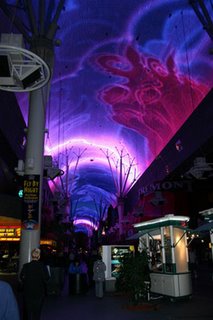 Now there's a day I hope never to experience again. Almost 24 hours ago, I took my first phospho-soda as part of the bowel preparation requirements for the colonoscopy I had this morning. Then again, around 3:30 am, I had the other bottle. From midnight until just a few moments before my procedure, I was stationed nearby the washroom, feeling worse and weaker as time progressed. By the time of the procedure, I could barely walk. I don't know how much of the negative sensations I had were owing to having gone through surgery, but the overall preparation experience was definitely one I hope fades from memory quickly.
Now there's a day I hope never to experience again. Almost 24 hours ago, I took my first phospho-soda as part of the bowel preparation requirements for the colonoscopy I had this morning. Then again, around 3:30 am, I had the other bottle. From midnight until just a few moments before my procedure, I was stationed nearby the washroom, feeling worse and weaker as time progressed. By the time of the procedure, I could barely walk. I don't know how much of the negative sensations I had were owing to having gone through surgery, but the overall preparation experience was definitely one I hope fades from memory quickly.The experience of the procedure itself was different from last time as well - different hospital, different specialist (the surgeon for my low anterior resection), different sedative, and different results. The only thing that was the same is the sense of disappointment as my surgeon told me that there was something near the anastomosis that required him taking a biopsy. I won't have results of the biopsy for another week when we meet for a consultation in my surgeon's office.
Even though the sedative did make me groggy, I felt and saw almost everything this time, including a painful digital rectal examination following the colonoscopy itself. I spoke with the surgeon before, during, and after the procedure; we seem to get along reasonably well, but he obviously is concerned about what he found. Funny, though, the sedation left me feeling similar to last time - the news was disconcerting, but I was numb. Next week is when I suspect I'll be more nervous about the results of the biopsy.
The good news was that the colon itself was clear with no evidence of any polyps at all.
Still, this coming few days will be ones of "what if" scenarios playing out in my mind and in my conversations with my wife and sons. It could be bad. It the biopsy shows recurrent cancer, I will undoubtedly be subject to more treatment. The prospect of more surgery, radiation, or chemotherapy leaves me feeling cold. But, of course, I'll do whatever is necessary.












